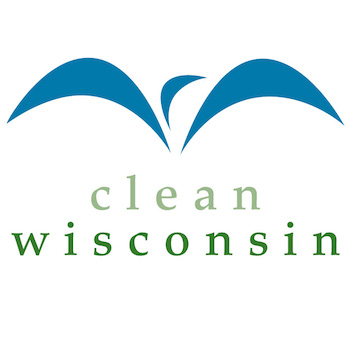As the year comes to a close, we’d like to take a moment to reflect on our accomplishments in 2023. Our work continued to advance water quality protections through strong advocacy with state-level decisionmakers, build towards a net-zero carbon emissions future, partner with communities to prepare for the effects of climate change, and defend critical environmental protections through our legal action. Here are just a few of the many accomplishments:
- Clean Wisconsin and our partners worked to secure strong bipartisan support for legislation that would create a new Transition to Grass program. The goal of this program is to help farmers convert land from traditional row cropping to managed grazing. This shift in land management will reduce nitrate contamination, sequester carbon, and improve water quality.
- Our advocacy helped secure $125 million in the state budget to fund communities and individuals impacted by PFAS contamination. PFAS or per- and polyfluoroalkyl substances are dangerous “forever chemicals,” known for their persistence and tendency to build up in the environment and human bodies over a lifetime. We will continue to advocate for limiting the use of these dangerous “forever chemicals” – an important step towards protecting Wisconsin’s public health.
- This year, we celebrated 10 years of a Greener Milwaukee in the 30th Street Industrial Corridor. To date, Clean Wisconsin has installed almost 5,000 square feet of rain gardens and over 800 rain barrels – capable of storing up to 70,000 gallons of water per storm. These practices are essential to reduce stormwater flooding, basement backups, prevent pollution in Lake Michigan, and protect our drinking water. Together with engaged community partners and Milwaukee Metropolitan Sewerage District, we are making Milwaukee more resilient to climate change and will look to expand this program to other vulnerable communities in Wisconsin.
- Earlier this year, Clean Wisconsin released an important study showing that solar panels generate 100 times more energy per acre than corn grown for ethanol. We know that Wisconsin needs about 280,000 acres of solar to reach our 2050 goals, while Wisconsin already dedicates approximately one million acres of land to produce corn-derived ethanol. Converting less than one-third of corn ethanol fields to a more efficient form of energy will allow us to meet our climate goals and reduce the need for pesticides and nitrogen fertilizer application resulting in cleaner drinking water and healthier soils.
- The Public Service Commission delivered an important victory for the future of rooftop solar when they agreed with Clean Wisconsin in early November, rejecting Alliant Energy’s proposal to change how customers are compensated for rooftop solar. The PSC agreed that rooftop solar is both working for customers and important to advancing Wisconsin’s 2050 net-zero goals. The PSC also agreed that Alliant Energy should investigate all federal funding opportunities to finance the early retirement of the Edgewater 5 coal plant instead of footing ratepayers with the bill.
- Clean Wisconsin recently convened Wisconsin Farmers, state agencies, and legislative staff at a farm in Spring Green to advocate for policies to strengthen the U.S. Farm Bill. By hosting events like these, we can highlight the value of federal conservation programs that support sustainable agricultural practices for decisionmakers, and endorse legislation that prioritizes water quality.
As we look towards 2024, we are excited to continue and build upon these successes and so much more. Thank you for your continued support that makes our important work possible!

